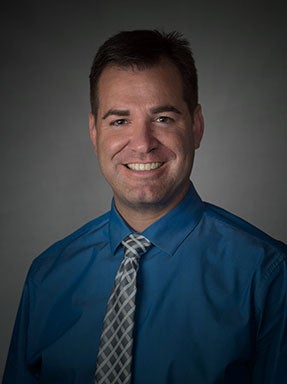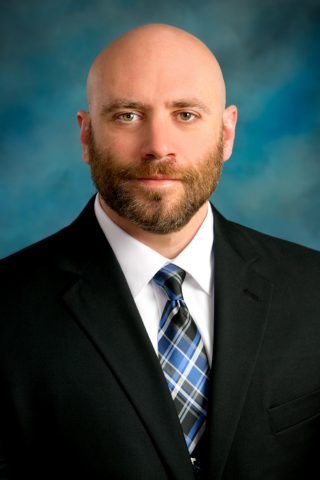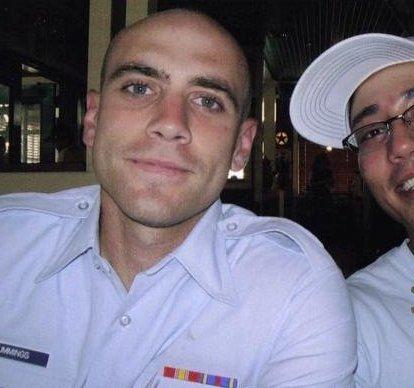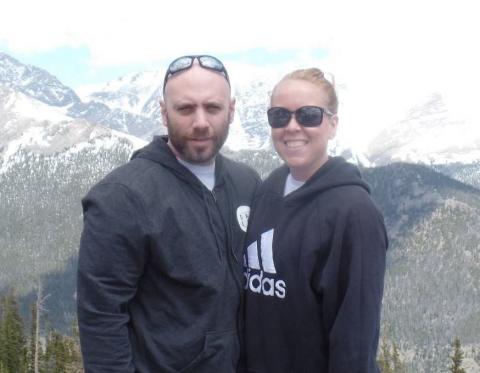DU Graduate Hopes to Use the Law to Continue Serving His Country and the World
You’d be hard pressed to find a law student with better credentials or better prepared to graduate than Brad Cummings. And of the full-time faculty at the University of Denver’s Sturm College of Law, it would be difficult to find someone whose path he has not crossed over the past six years.
“I am an aberration,” he says laughing. “Many people end up maybe getting one LLM or master’s degree, but I’ve got three on top of my JD. It’s definitely not the track that most students take.”
Cummings’ law school education began at Sturm in 2014. He completed dual master’s degrees in environmental and natural resources law and resource law studies before graduating with his JD in December. This week he will graduate with his LLM in international business transactions. His hope now is to pursue a career in environmental law, an area he became passionate about during his 13 years of service in the military.
Cummings was 26 years old with several years of retail experience on his resume when he decided to enlist in the Air Force.
“I always had the idea in the back of my mind to do the military,” he says. “It gave me an opportunity to travel and go and do things that I wouldn’t normally be able to do as a civilian. And obviously, [it was] an opportunity to serve our country.”
Cummings deployed twice to the Middle East and was stationed in Qatar both times. He worked primarily in the Air Force Office of Special Investigations (AFOSI), which he describes as comparable to the NCIS, or Naval Criminal Investigation Service. Cummings worked on fraud investigations and counterintelligence. During his service, he completed his undergraduate degree in philosophy from American Military University.
“It’s definitely not like sitting down in a classroom when you are deployed and carrying out missions,” Cummings says about the challenges of balancing an education and full-time military service. “The only option you have when you’re deployed is doing everything online.”
It was while he was deployed to the Middle East that Cummings realized his passion for the environment and the law.
“I saw a lot of oil fires burning and other things they do there and the impact and damage it can have on the environment. There doesn’t seem to be stewardship [related to] the things that we are doing to the environment to sustainably develop these regions,” he says. “I think the more lawyers who get into this realm, the more we can start making headway establishing relations and establishing processes. That is what the law does.”
Cummings decided to attend DU and the Sturm College of Law for two reasons: First, he was able to attend class and continue his work with the AFOSI while he was in the reserves. Second, the experiential learning opportunities were far better than those at the other schools he was considering. “I wanted to be able to have contacts and the ability to learn on the job, and DU was definitely the best option,” he says.
In addition to pursuing four law degrees, Cummings has been part of several projects and externships. He established and is the editor of environmentat5280.org, a blog through the law school that produces short articles reacting to environmental issues in the news. Students, faculty and DU alumni contribute to the blog. He completed an externship with Sustainable Development Strategies Group, an organization providing sustainable development concepts for solving real, practical natural resource governance problems at local, regional, national and global levels. And for the past two years, Cummings has helped others who have served the country through Sturm’s Veterans Advocacy Project (VAP). Students partner with local attorneys to work with veterans on VA disability benefit compensation cases and on discharge upgrade cases.
“One of my biggest issues when leaving the military was the absolute lack of care for military members when they get out,” he says. “There are not a lot of good things that I can say about the VA. They are like gatekeepers, and you should not be gatekeeping against someone’s benefits. It is something veterans have earned while in service, and if they gave for their country, they deserve to get at least medical benefits back when they are done.”
The VAP receives more than 100 applications a year for assistance, and all the work is done at no cost. Cummings is pursuing a fellowship to continue his work with the program by serving in a mentorship role for future students.
Cummings says by practicing law he hopes to continue to help veterans and our environment by serving the country and the world. “The more you give back from what you have, the better our world ends up being.”






